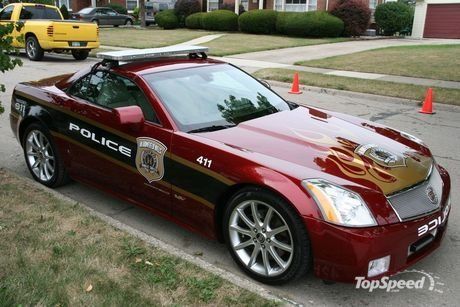Curacao
Island in the Caribbean.
As sure as the sun rises and God makes little green apples, there will always be a Chevrolet Corvette.
Exactly what the next generation of America's most revered sports car will bring is the topic of intense study within General Motors, however.
The Corvette is arguably the world's best sports car. It has looks that would make Ferrari proud, performance to match Porsche, and a price that undercuts both by tens of thousands of dollars.
It also has countless fanatical admirers and a devoted owner base built up over decades.
This is not a formula an automaker messes with lightly.
However, there's a school of thought within GM that the next Corvette -- which probably won't hit the road for at least three to four years -- must break the mold.
Chevrolet finds itself on t
he horns of a dilemma. Should the new Corvette embrace higher technology and the higher price that would go with it? Or should the mid-2010s car reach out to buyers enraptured by the 'Vette mythos but unable to afford today's car?
It may do both.
Prices for the 2010 Corvette start at $48,930. It's a bargain compared with other beautiful high-performance sports cars like the $114,200 Audi R8, $192,000 Ferrari California and $76,300 Porsche 911.
However, the Corvette is out of reach for many buyers. At the same time, its relative affordability keeps Chevrolet from equipping it with higher-tech drivetrains, expensive lightweight materials and the most advanced electronic systems the world's other supercars offer.
One school of thought within GM says Chevrolet should split the Corvette into two models -- a high-end vehicle that offers everything Audi, Ferrari and Porsche do and a separate, more affordable model.
"To compete fully with Porsche, prices would have to go well over $100,000. That's not a volume car, so it makes sense to have another model that appeals to buyers who are a little younger," said Bill Perkins, president of Perkins Automotive Group, which includes Merollis Chevrolet in Eastpointe and Taylor Chevrolet in Taylor.
GM has not made any decisions yet. If it takes the two-model route, however, the cars would have different styling, names and powertrains
The upside is obvious: Make a great car better and charge a higher price for it while tapping into a pool of new customers.
The risks are equally clear. By fiddling with a winning formula, GM risks alienating existing buyers without winning new ones.
"Any time you talk about changing an iconic model, there are always pros and cons," said Rebecca Lindland of consultancy IHS Global Insight.
Porsche has shown the strategy can work. Its Cayman sports car offers Porsche performance and looks for a lower price than the 911. It boosted sales without tarnishing the 911's reputation.
Standing pat may not be an option for the next Corvette.
"Generation X doesn't relate to the Corvette," Lindland said.
Indeed, Corvette sales hit a 49-year low of just 13,934 in 2009, Edmunds AutoObserver.com notes. Corvette's 48.3% decline was far worse than Chevrolet or GM as a whole suffered in recession-plagued 2009.
A more affordable Corvette would be a return to the model's roots, IHS analyst John Wolkonowicz said. As late as the mid-1990s, "mere mortals could afford Corvettes," he said. "A college grad could order a new 'Vette. You don't see that anymore."
However, the more affordable version must not be a 'Vette-lite, IHS consultant Bruce Harrison said. "It must be a no-excuses car -- it almost needs to be everything today's Corvette is."
If GM can build that car for around $40,000, there's room for a separate top model with prices that start above the current Corvette and extend well above $100,000, he said.
Source
Exactly what the next generation of America's most revered sports car will bring is the topic of intense study within General Motors, however.
The Corvette is arguably the world's best sports car. It has looks that would make Ferrari proud, performance to match Porsche, and a price that undercuts both by tens of thousands of dollars.
It also has countless fanatical admirers and a devoted owner base built up over decades.
This is not a formula an automaker messes with lightly.
However, there's a school of thought within GM that the next Corvette -- which probably won't hit the road for at least three to four years -- must break the mold.
Chevrolet finds itself on t
he horns of a dilemma. Should the new Corvette embrace higher technology and the higher price that would go with it? Or should the mid-2010s car reach out to buyers enraptured by the 'Vette mythos but unable to afford today's car?
It may do both.
Prices for the 2010 Corvette start at $48,930. It's a bargain compared with other beautiful high-performance sports cars like the $114,200 Audi R8, $192,000 Ferrari California and $76,300 Porsche 911.
However, the Corvette is out of reach for many buyers. At the same time, its relative affordability keeps Chevrolet from equipping it with higher-tech drivetrains, expensive lightweight materials and the most advanced electronic systems the world's other supercars offer.
One school of thought within GM says Chevrolet should split the Corvette into two models -- a high-end vehicle that offers everything Audi, Ferrari and Porsche do and a separate, more affordable model.
"To compete fully with Porsche, prices would have to go well over $100,000. That's not a volume car, so it makes sense to have another model that appeals to buyers who are a little younger," said Bill Perkins, president of Perkins Automotive Group, which includes Merollis Chevrolet in Eastpointe and Taylor Chevrolet in Taylor.
GM has not made any decisions yet. If it takes the two-model route, however, the cars would have different styling, names and powertrains
The upside is obvious: Make a great car better and charge a higher price for it while tapping into a pool of new customers.
The risks are equally clear. By fiddling with a winning formula, GM risks alienating existing buyers without winning new ones.
"Any time you talk about changing an iconic model, there are always pros and cons," said Rebecca Lindland of consultancy IHS Global Insight.
Porsche has shown the strategy can work. Its Cayman sports car offers Porsche performance and looks for a lower price than the 911. It boosted sales without tarnishing the 911's reputation.
Standing pat may not be an option for the next Corvette.
"Generation X doesn't relate to the Corvette," Lindland said.
Indeed, Corvette sales hit a 49-year low of just 13,934 in 2009, Edmunds AutoObserver.com notes. Corvette's 48.3% decline was far worse than Chevrolet or GM as a whole suffered in recession-plagued 2009.
A more affordable Corvette would be a return to the model's roots, IHS analyst John Wolkonowicz said. As late as the mid-1990s, "mere mortals could afford Corvettes," he said. "A college grad could order a new 'Vette. You don't see that anymore."
However, the more affordable version must not be a 'Vette-lite, IHS consultant Bruce Harrison said. "It must be a no-excuses car -- it almost needs to be everything today's Corvette is."
If GM can build that car for around $40,000, there's room for a separate top model with prices that start above the current Corvette and extend well above $100,000, he said.
Source








